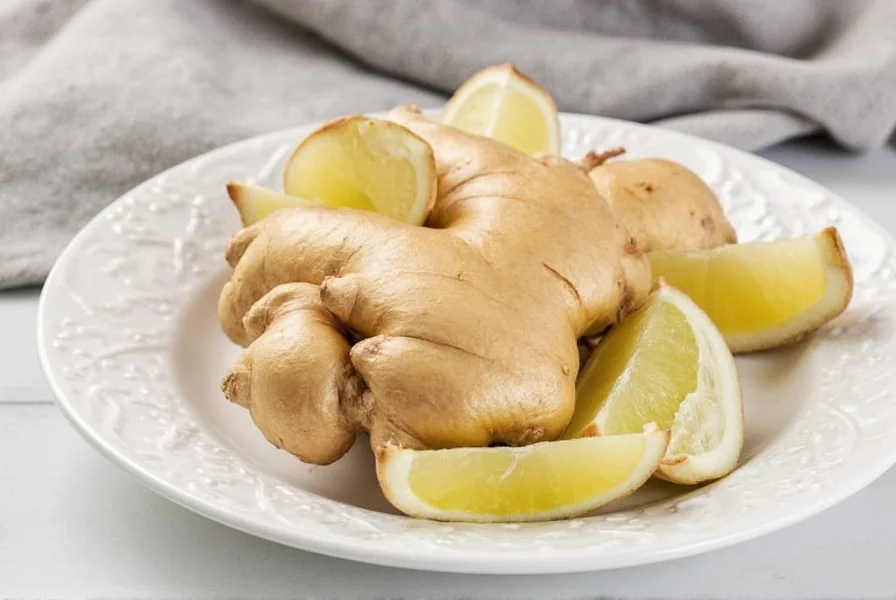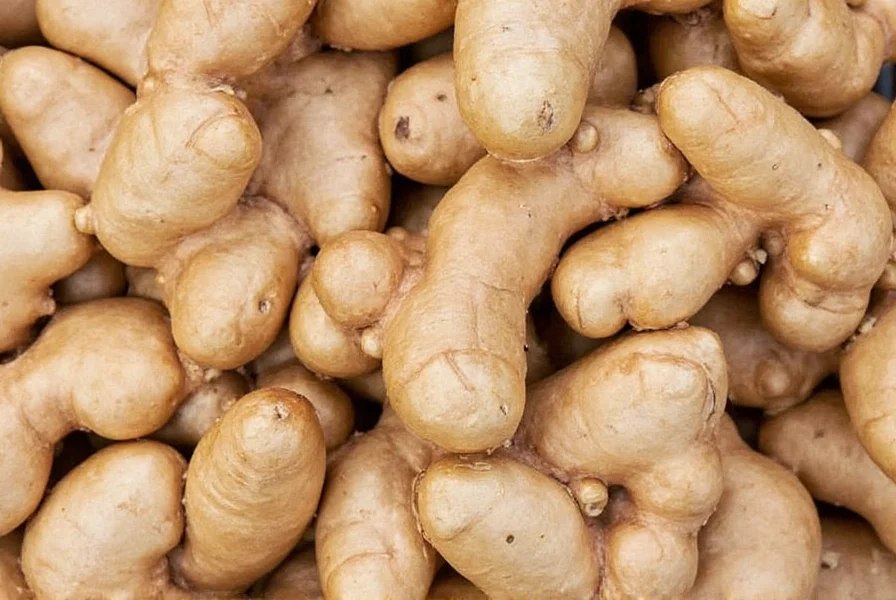Understanding proper ginger storage prevents waste and ensures you always have this versatile root ready for cooking, baking, or making teas. Whether you're a home cook stocking your pantry or someone who uses ginger occasionally, knowing the science behind storage methods helps maximize shelf life while preserving flavor and nutritional value.
Factors That Determine Ginger Storage Needs
Ginger storage requirements depend on three critical factors: whether the ginger remains whole or has been cut, your intended usage timeline, and your kitchen's environmental conditions. Whole ginger with intact skin contains natural protective compounds that slow moisture loss and microbial growth. Once cut, these defenses are compromised, requiring immediate refrigeration.
Humidity plays a crucial role in ginger preservation. In dry climates, ginger loses moisture faster at room temperature, becoming fibrous and shriveled within days. High-humidity environments accelerate mold growth, particularly on cut surfaces. Temperature stability matters too—fluctuations between cool mornings and warm afternoons can cause condensation inside storage containers, creating ideal conditions for spoilage.
Storage Methods Compared: What Works Best
Each storage technique offers different benefits depending on your usage patterns. Choose the method that aligns with how quickly you'll consume your ginger:
| Storage Method | Shelf Life | Best For | Key Requirements |
|---|---|---|---|
| Room Temperature (whole) | 1-2 weeks | Immediate use | Cool, dark place; paper bag |
| Refrigerator (whole) | 3-4 weeks | Regular cooking | Unwashed; paper towel; perforated bag |
| Refrigerator (cut) | 1-2 weeks | Prepared ginger | Airtight container; minimal moisture |
| Freezer (whole) | 6+ months | Long-term storage | Waxed paper; freezer bag |
| Freezer (grated) | 6+ months | Convenience cooking | Ice cube tray; oil or water |
Room Temperature Storage: When It Works
Storing whole ginger at room temperature works effectively for short durations when kept in optimal conditions. Place unpeeled ginger in a paper bag (never plastic) and store in a cool, dark cabinet away from heat sources like ovens or direct sunlight. The paper bag absorbs excess moisture while allowing the ginger to breathe, preventing the condensation that leads to mold.
This method maintains ginger's firm texture and pungent flavor for approximately 7-10 days in most home environments. In particularly dry climates, check periodically for shriveling—once ginger loses significant moisture, its flavor concentrates but becomes fibrous and less pleasant to eat raw. For those asking does fresh ginger go bad at room temperature, the answer is yes, typically showing signs of spoilage after 10-14 days.

Refrigeration Techniques That Extend Freshness
Refrigeration dramatically extends ginger's shelf life while maintaining quality. For whole roots, wrap each piece individually in paper towels to absorb surface moisture, then place inside a perforated plastic bag or reusable produce container. The paper towel prevents condensation buildup while the perforated container maintains proper airflow.
For cut or peeled ginger—which must always be refrigerated—store in an airtight container with one of these moisture-control methods:
- Submerge in dry sherry or vodka (preserves flavor while preventing mold)
- Cover with neutral oil (avocado or grapeseed work well)
- Place with a folded dry paper towel to absorb excess moisture
These techniques answer the common question how to keep ginger from spoiling in the refrigerator by addressing the primary causes of refrigerated spoilage: excess moisture and oxygen exposure.
Freezing Ginger: The Long-Term Solution
Freezing provides the longest shelf life while preserving ginger's culinary properties. Whole roots freeze well when wrapped in waxed paper (not plastic wrap, which can impart freezer odors) and placed in freezer bags with air removed. For immediate use in cooking, freeze grated ginger in ice cube trays covered with water or oil, then transfer to labeled freezer bags.
The significant advantage of frozen ginger is that you can grate it directly from the freezer without thawing—this method actually works better than fresh ginger for many applications. Frozen ginger maintains quality for 6-12 months, making it ideal for those wondering can you freeze fresh ginger to extend its shelf life.

Recognizing Spoiled Ginger: Safety First
Knowing when ginger has spoiled prevents food waste while ensuring safety. Discard ginger showing any of these signs:
- Mushy texture or deep soft spots (surface wrinkles are normal)
- Visible mold (white fuzz or black spots)
- Sour or musty odor (fresh ginger should smell spicy and earthy)
- Grayish discoloration beneath the skin
Unlike some produce, ginger doesn't develop dangerous toxins when spoiling, but mold penetration makes affected portions unsafe to eat. When in doubt, cut away at least 1 inch around any questionable areas. For those concerned about signs that ginger has gone bad, remember that minor surface wrinkles indicate drying but remain safe if the interior remains firm and aromatic.
Pro Tips for Maximum Ginger Longevity
Implement these professional storage techniques to get the most from your ginger:
- Never wash ginger before storage—moisture accelerates spoilage
- Store with the root's 'knuckles' pointing upward to reduce moisture pooling
- Keep ginger away from strong-smelling foods like onions that it can absorb
- For cut ginger, change the paper towel lining every 3-4 days to maintain dryness
- Revive slightly soft ginger by soaking in cold water for 30 minutes
Understanding how long does ginger last in the refrigerator depends on these small but critical details. Properly stored whole ginger maintains peak quality for 3-4 weeks refrigerated, while cut ginger lasts 7-10 days when stored correctly.
Frequently Asked Questions
Can you store ginger in water to keep it fresh?
No, storing ginger submerged in water accelerates spoilage by promoting mold growth. While some people store cut ginger in sherry or vodka for refrigeration, plain water creates ideal conditions for bacterial growth. For short-term storage of cut ginger, use the paper towel method in an airtight container instead.
Does ginger lose potency when frozen?
Frozen ginger maintains nearly all its flavor and nutritional compounds when properly stored. The freezing process actually makes the fibers more brittle, allowing you to grate frozen ginger more easily than fresh. For best results, freeze grated ginger in oil or water in ice cube trays for convenient portioning in cooking and baking.
How can I tell if refrigerated ginger is still good?
Good refrigerated ginger should feel firm when squeezed, have a spicy-aromatic scent, and show no visible mold. Surface wrinkles are normal as ginger dries out, but avoid pieces with mushy spots, gray discoloration beneath the skin, or sour/musty odors. Whole refrigerated ginger typically remains good for 3-4 weeks when stored properly in a perforated bag with paper towel.
What's the best way to store ginger for tea making?
For tea preparation, freeze whole ginger chunks in labeled freezer bags. When needed, drop a frozen piece directly into boiling water—the heat extracts flavor more efficiently from frozen ginger. This method answers how to store fresh ginger long term specifically for tea drinkers, maintaining potency for 6+ months while providing convenient single-use portions.











 浙公网安备
33010002000092号
浙公网安备
33010002000092号 浙B2-20120091-4
浙B2-20120091-4